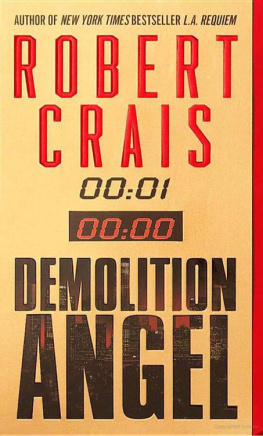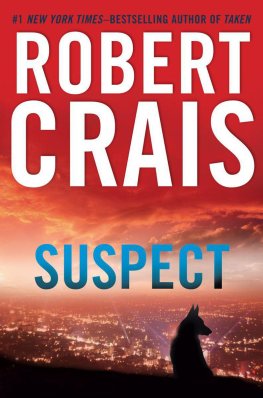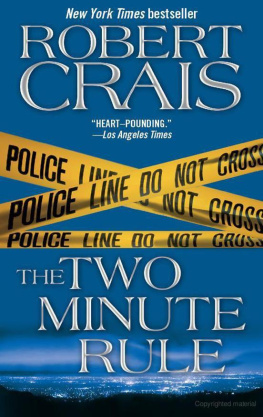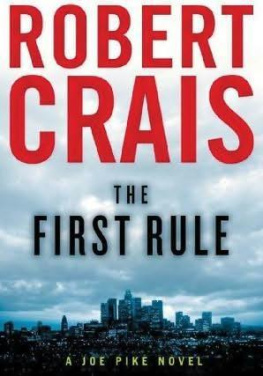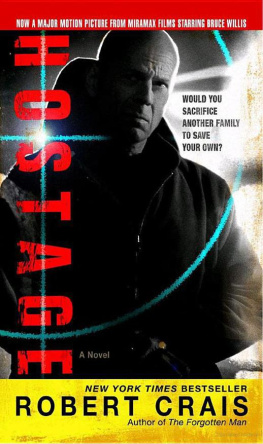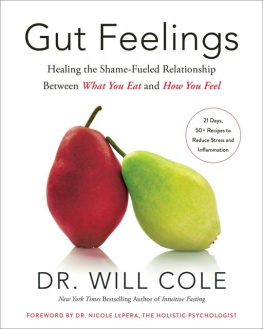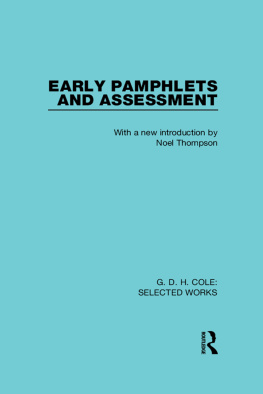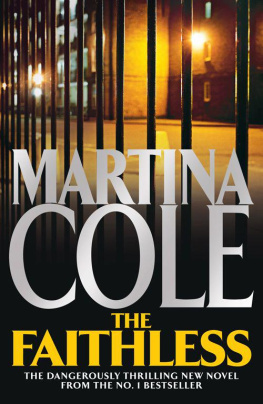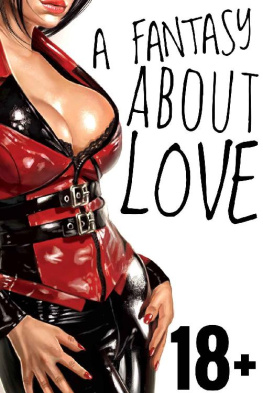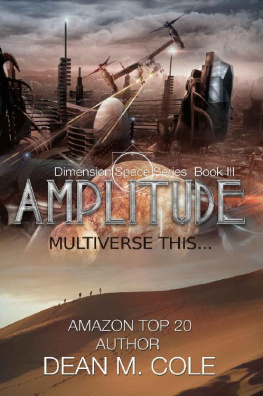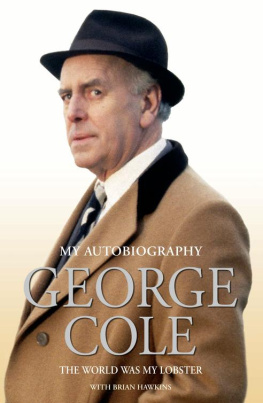
Robert Crais
The Forgotten Man
The tenth book in the Elvis Cole series, 2005
On the personal side, Dr. Robert Beart and his elite team at the USC/Norris Cancer Center must be thanked for giving her back to me. In that effort, Dr. Randy Sherman, also of USC and the Keck School of Medicine, gave us emergency access we otherwise might not have had. The debt cannot be repaid.
On the research side, help, expertise, and advice came from many fronts: Detective-3 John Petievich, retired, consulted on matters relating to the LAPD. Craig Harvey, Chief Coroner Investigator of L.A. County 's Department of Coroner, was generous with his time and patient with my questions. And, again, Dr. Randy Sherman was essential for the introductions and the science.
On the literary side, Jason Kaufman, my editor, contributed enormously to the evolution and development of this manuscript. Thank you.
The Empty HouseTemecula, California
Late during one of those perfect twilights when the sky shimmered with copper like the last pulse of heat burning out of a body, Padilla and Bigelow turned off the highway onto a narrow residential street that brought them directly into the sun. They reached for their sun visors at the same time, both of them squinting, as Padilla thought, Christ, it was like driving head-on into hell.
Bigelow sat forward when he saw the women in the street.
"On the left. I'll call it in."
Bigelow had three months in the car, compared to Padilla's nine years and change, so he was still excited by that stuff, the radio, the days when Padilla let him drive, and responding to a possible capital crime.
"Call, but try not to sound so excited. You sound like you got a chub over this. Let me tell you something, you get these calls, they're bullshit, they want attention, they're just confused, they're drunk, whatever, so try to sound like you know what's what."
"Okay."
"Sound bored, like you finally figured out being a cop is bullshit."
"You think I'm going to embarrass you?"
"It crossed my mind."
The women and children stood in the street between rows of cramped stucco houses, everyone in shorts and sandals, maybe seven or eight of them altogether. Ford pickups and an occasional boat were parked in their driveways. The neighborhood was similar to Padilla's, only Padilla was closer to town where the valley was green, not out here where the hills flattened into something like desert. Out here, landscaping was lava rock, blue gravel, and dead grass.
Padilla pulled over and got out as Bigelow made the call. He hated getting out of the car. Even at twilight, it was a hundred and five.
"Okay, what do we have? Who called?"
A heavyset woman with thin legs and wide feet stepped past two teenaged girls.
"That would be me, Katherine Torres. She's on the floor. I think it's her, but I couldn't tell."
They had been dispatched to a 911, the Torres woman screaming her neighbor was dead with blood everywhere. Dispatch put out the call and now here they were, Padilla and Bigelow, uniformed patrol officers with the Temecula Police Department. Katherine Torres' hand waved as if a nervous life possessed it.
"All I saw were feet, but I think it's Maria. I called through the screen 'cause I knew they were home, so I looked in. The feet are all wet-and the legs-and I don't know it looks like blood."
Bigelow joined them as Padilla eyed the house. The sun was almost behind the mountains and most of the houses were showing lights. The house in question was dark. Katherine Torres could have seen anything-a towel someone dropped on the way from the shower, a spilled Dr Pepper, or feet wet with blood.
Padilla said, "They got a dog?"
"No, no dog."
"How many people live here?"
One of the teenaged girls said, "Four, the parents and two children. They're really nice. I sit for the little girl."
Bigelow, so anxious to get to the house that he shifted from foot to foot like a kid having to pee, said, "Anyone hear any shouting, fighting, anything like that?"
No one had heard anything like that or anything else.
Padilla told the women to wait in the street, then he and Bigelow approached the house. The ground crunched under their boots. Large black ants crossed the earth in an irregular line, come out in the deepening twilight. The copper sky had purpled in the west as the darkness chased the sun. The house was quiet. The air was still in the way it can only be still when it floats in the emptiness of the desert.
Padilla reached the front door and knocked hard three times.
"Police officer. Frank Padilla with the police. Anyone home?"
Padilla leaned close to the screen, trying to peer inside, but it was too dark to see anything.
"Police. I'm going to open the door."
Padilla drew his flashlight, trying to recall how many times he had tapped on doors and windows all hours of the night, usually checking on old people someone feared had passed away, and twice they had, but only twice.
"Officers here! Coming inside, knock knock."
Padilla pulled open the screen. He and Bigelow snapped on their flashlights at the same time, just as Bigelow said, "I smell something."
Their lights fell to the woman's body, early to midthirties, facedown on the living room floor, most of her hidden behind an ottoman that had been pushed to the center of the floor.
Bigelow said, "Oh, man."
"Watch where you step."
"Man, this is nasty."
Outside, the woman called from the street.
"What do you see? Is it a body?"
Padilla drew his gun. His heart was suddenly so loud he had difficulty hearing. He felt sick to his stomach and scared that Bigelow was going to shoot him. He was more afraid of Bigelow than the murderer.
"Don't shoot me, goddamnit. You watch what you shoot."
Bigelow said, "Jesus, look at the walls."
"Watch the goddamned doors and where you point that gun. The walls can't kill you."
The woman was wearing frayed cutoff jean shorts and a Frank Zappa T-shirt torn at the neck. Her shirt and legs were streaked with crusted blood. The back of her head was crushed, leaving her hair spiked with red gel. Another body lay between the living room and the dining room, this one a man. His head, like the woman's, was misshapen, and his blood had pooled in an irregular pattern reminding Padilla of a birthmark on his youngest daughter's foot. The floor was smudged as if they had tried to escape their attacker and splatter patterns ribboned the walls and ceiling. The weapon used to kill these people rose and fell many times, the blood it picked up splashing the walls. The smell of voided bowels was strong.
Padilla waved his pistol toward the hall leading to the bedrooms, then toward the kitchen.
"I'll clear the kitchen. You wait here watching the hall, then we'll do the rooms back there together."
"I ain't moving."
Padilla said it all louder than necessary, hoping if someone heard him they'd jump out the window and run. He moved past the man's body, then into the kitchen. The body of a twelve-year-old boy was on the kitchen floor, partially beneath a small dinette table as if he had been trying to escape. Padilla forced himself to look away. All he thought about now was securing the damned house so they could call in the dicks.
Bigelow called from the living room, "Hey, Frank-"
Padilla stepped back through the door. The rooms were bright now because Bigelow had turned on the lights.
"Frank, look at this."
Bigelow pointed to the floor.
In the light, Padilla saw little hourglass smears pressed into the carpet; tiny shapes that Padilla studied until he realized they were footprints. These footprints circled the bodies, tracking from the woman to the man, then into the kitchen and out again, around and around each body. The prints led into the hall toward the bedrooms.
Next page

